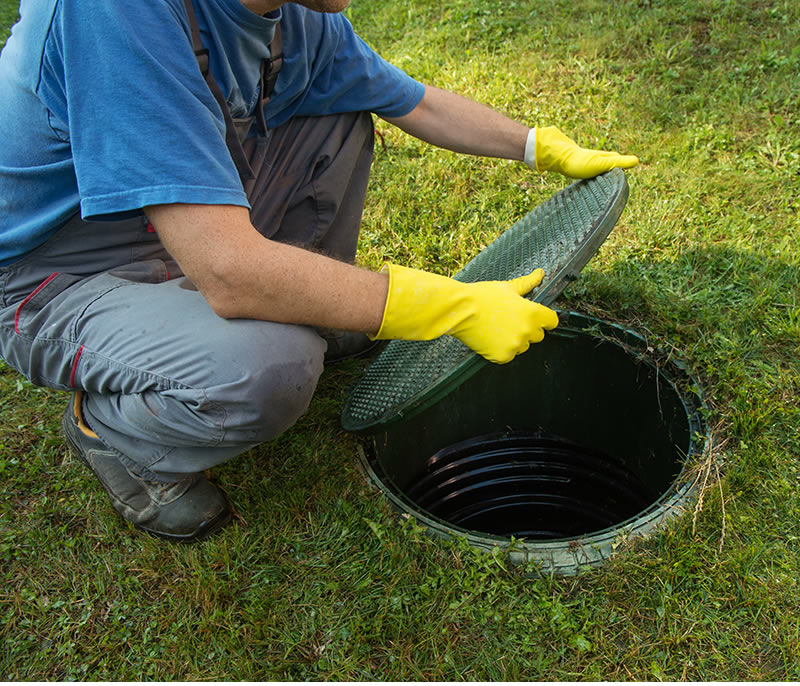Call This Wednesday to Get $25 OFF
Clean Solutions, Dirty Jobs – Done Right. Reliable. Responsive. Remarkable.
Call This Wednesday to Get $25 OFF
Clean Solutions, Dirty Jobs – Done Right. Reliable. Responsive. Remarkable.
Every time you run the dishwasher, flush the toilet, or wash your hands, all that wastewater has to go somewhere. For homes not connected to a municipal sewer system, that “somewhere” is your septic tank. It’s easy to forget about your septic system since it works quietly underground, but without proper septic tank maintenance, things can quickly go wrong.

At Septic Connection, we believe education is key to keeping your septic system healthy. Here’s why regular pumping is one of the most important steps you can take to keep everything flowing smoothly.
Your septic system has a simple but vital job: separate and process wastewater. When water leaves your home, it flows into the septic tank. Solids settle at the bottom as sludge, oils and grease float to the top as scum, and the liquid layer (effluent) flows out to the drain field for natural filtration.
Over time, solids accumulate, and the tank can only hold so much. Without routine pumping, sludge builds up and starts blocking the flow, leading to backups, foul odors, and even system failure. That’s where regular septic tank maintenance comes in.
The septic system is an onsite waste treatment facility, and it is incredibly reliable. However, the system is only as effective…
Imagine flushing your toilet and then suddenly realizing that your backyard has turned into a swampy mess. This unpleasant experience is…
Soil testing is a critical step in various construction and environmental projects. It provides essential information about the ground conditions, which…
Grease traps are remarkable tools that help keep your establishment clean and free from bad odors. Septic Connection has a…
If you have just moved into a new home or property that relies on a septic system for waste and wastewater…
Pumping is the process of removing the accumulated sludge and scum from your tank. Here’s why it’s so important.
Regular pumping is a small investment compared to the thousands of dollars it costs to replace an entire system.
The frequency depends on the size of your tank and the number of people in your household. On average, most homeowners need septic tank maintenance every 3–5 years. Larger households or homes with smaller tanks may need service more frequently.
A professional septic company like Septic Connection can assess your system and recommend a schedule tailored to your needs.
Sometimes your septic system will give you clues that service is overdue. Watch for these red flags.
If you notice any of these issues, don’t wait. Call a trusted septic company immediately.
When it comes to your home’s septic system, experience and reliability matter. At Septic Connection, we specialize in septic tank pumping, cleaning, and routine maintenance. Our team uses advanced equipment to ensure your system is thoroughly cleaned and inspected for any potential problems. By partnering with us, you’ll know your septic system is in good hands and will be working efficiently for years to come.
From your kitchen sink to your septic tank, everything in your home’s plumbing is connected. Regular septic tank maintenance is the best way to protect your home, avoid costly repairs, and keep wastewater moving where it should.
Don’t wait for a messy backup to remind you of the importance of pumping. Call Septic Connection, your trusted local septic company, and schedule your maintenance today.
It started like many household plumbing problems do: slow drains, gurgling sounds, and water backing up where it shouldn’t. The assumption was simple—a stubborn clog somewhere in the pipes. A…
Read moreWhen septic problems start, many homeowners look for quick and inexpensive solutions. Online videos, store-bought additives, and advice from well-meaning neighbors can make do-it-yourself septic fixes seem appealing. Unfortunately, septic…
Read more